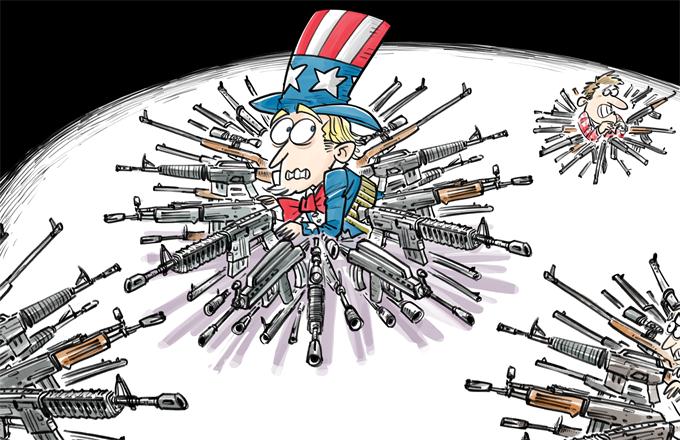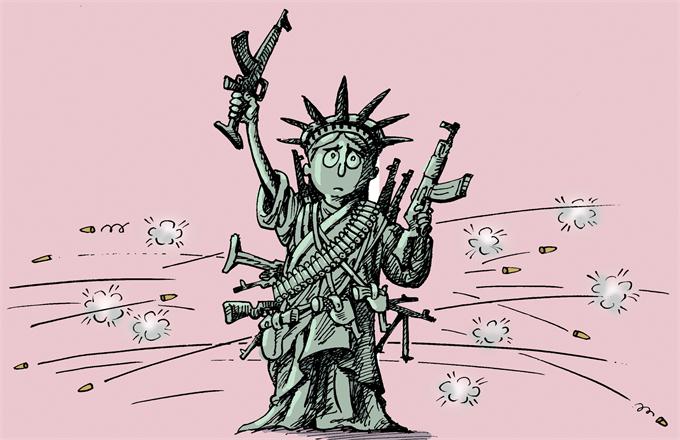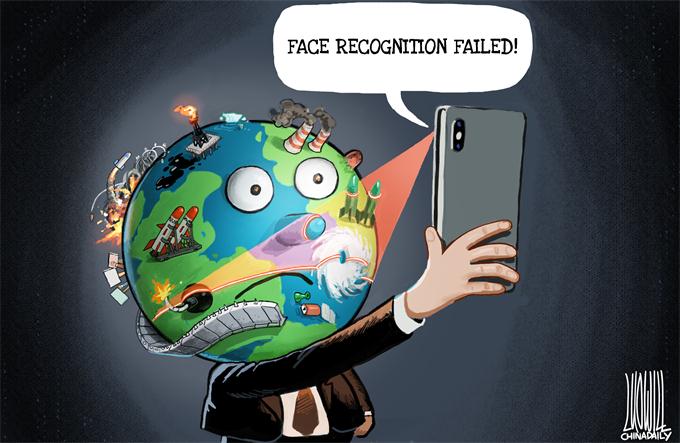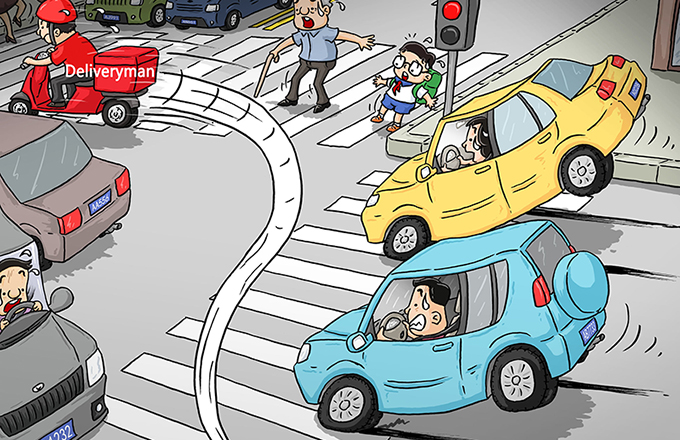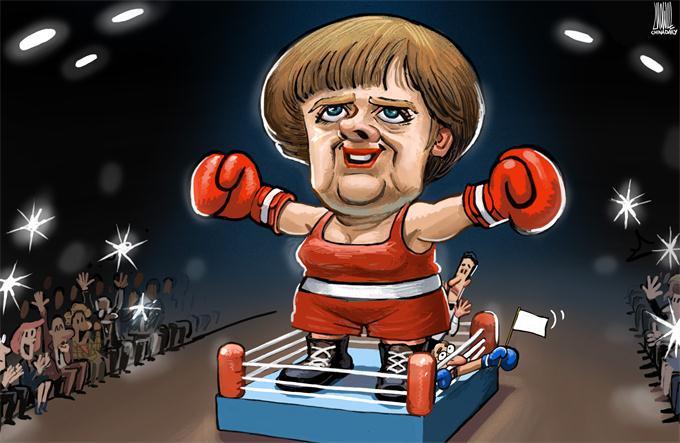Why are there always shootings in the US?
 |
|
A woman leaves flowers at a makeshift memorial on the Las Vegas Strip for victims of the Route 91 music festival mass shooting next to the Mandalay Bay Resort and Casino in Las Vegas, Nevada, US October 3, 2017. [Photo/Agencies] |
The mass shooting in Las Vegas has prompted broad discussion, both in the United States and the rest of the world, on gun control. In the US the constitutional right to gun ownership has become the enabler of the indiscriminative killing of innocent people. Claims that "guns don't kill people, people do" only serve to draw attention to the fundamental issue, which is the deadly potentiality of people with guns.
Discussing the mass shootings in the US requires an understanding of several key factors. Behind the widespread gun ownership in the US is the Anglo-American militia tradition and an attachment to Lockean liberalism. Gun rights in the US are often justified as being a "defense against tyranny." According to this notion of the state of nature, freedom is thorough and comprehensive, but at the expense of order and security, which are compromised.
The disagreements over gun control and gun ownership, and whether the latter is a collective or individual right, indicate tremendous tensions between Lockean liberalism and Rousseauian republicanism.
The Second Amendment, which provides the right to bear arms, was a collective right in the Anglo-American militia tradition, and a constitutional arrangement for states to organize militias to check the powers of the central government. It does not prioritize the individual's right to arm him or herself. However, the ambiguous wording of the Second Amendment has rendered it very difficult to reach a consensus on the specific nature of such a right, resulting in much heated debate over the past 200 years. However, the Supreme Court's rights-centered jurisprudence changed everything. Because of its rulings on the matter in 2008 and 2011, gun ownership has become a fundamental individual right that neither federal nor state governments can restrict.
Francis Fukuyama coined the term "vetocracy" to summarize US constitutional politics, which are characterized by the separation of powers, as well as partisan politics and the influence of interest groups and the mass media. Several different groups in the US have the power to effectively if not literally veto a piece of legislation, thus blocking any change. This happens especially with gun control. Most importantly, the Supreme Court's rulings have constrained federal and state governments' room to maneuver, greatly reducing the effectiveness of political action.
Gun ownership was originally meant to counter tyranny. However, it is the Constitution's system of checks and balances as well as other basic rights stipulated in the Bill of Rights, rather than gun ownership per se, that have guaranteed freedom and democracy in the US. Democracy is not "armed peace" between the people and their government, but rather the former's "institutionalized supervision" over the latter. The natural link between guns and constitutional politics has weakened. In the meantime, gun ownership is increasingly associated with violence in society.
The US is a country of immigrants. It would not have remained at the forefront of world culture and technology without being a melting pot for global talent. Frequent shooting incidents, however, have seriously damaged the soft power of US culture and institutions, undermined immigrants' sense of safety and their confidence in the capabilities of the government. When the government fails to effectively control gun violence, the specter of individuals arming themselves and a "war of all against all" can only grow.
The right to bear arms has already lost its significance as a means to counter tyranny, and has instead become a weakness threatening US democratic institutions and security. Modernizing governance is not only a question for developing countries, but also one for developed nations like the US.
The author is an associate professor at the Law School of Beihang University
Source: chinausfocus.com



